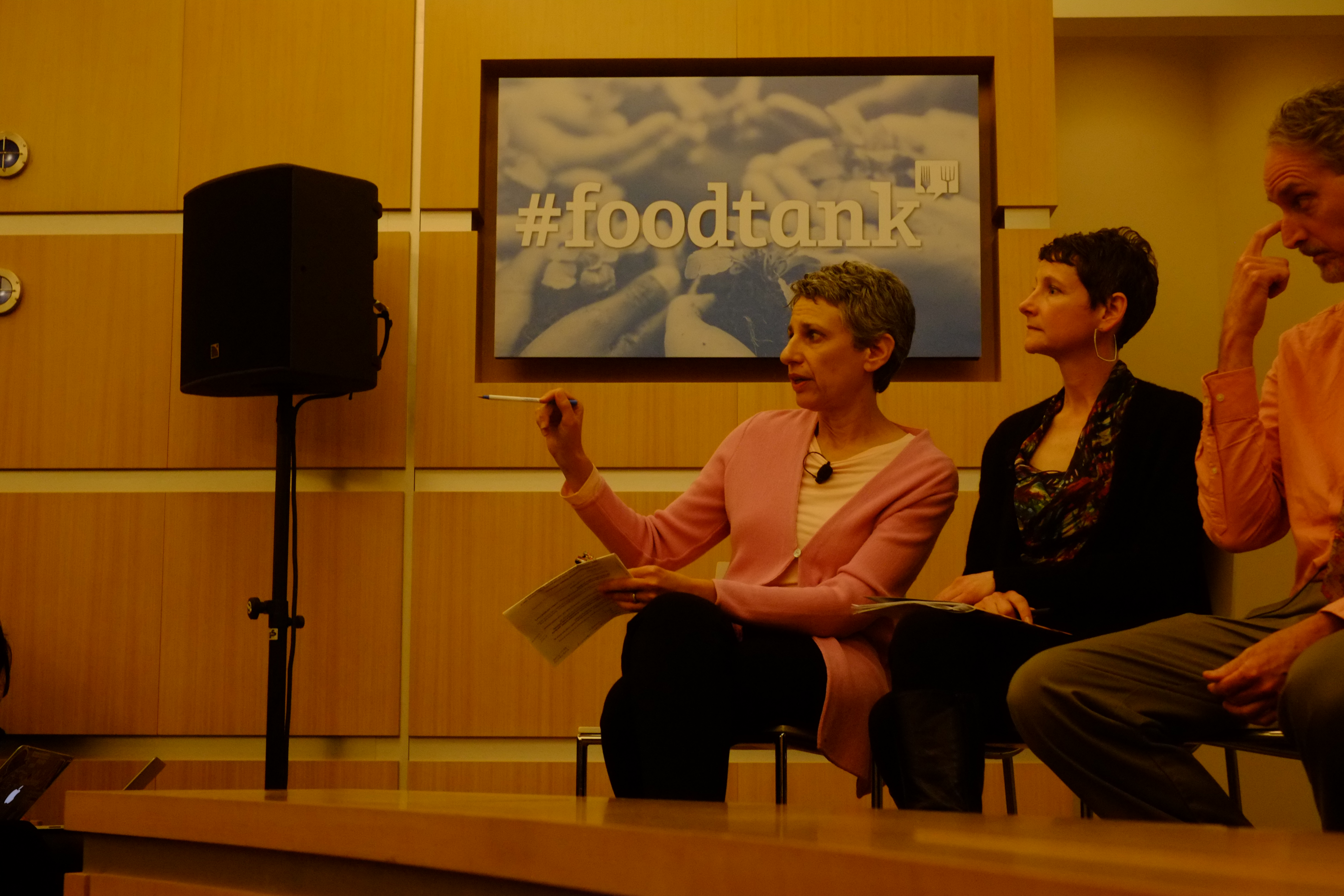The 2017 Food Tank Summit Series took place over two days at Tufts University’s Friedman School of Nutrition Science and drew speakers from the agricultural industry, including nutritionists, chefs and farmers. The theme of the summit was “Investing in Discovery,” and the panels discussed a number of issues, including access to healthy, inexpensive food for poor people and how young people can become farmers.
According to Ray Offenheiser, president of Oxfam America, a nationwide food surplus has left farmers with more food than they can sell. Increased production coupled with decreased imports has led to this food surplus in the United States. This has led to lower prices for consumers, but it’s also left farmers facing the prospect of warehouses full of food spoiling, a problem for which Offenheiser says people are trying to find a solution.
“Since farmers are facing a crisis [due to food surpluses], there is discussion in Washington about a food reserve so when we deal with the next drought we have something to fall back on. I think the question of market volatility in the system is something we need to tackle,” said Offenheiser, adding that “free market ideologues” are in favor of market volatility.
Offenheiser also noted that the average age of farmers in the United States is 58 years old, and there isn’t much opportunity for younger people to break into the farming industry.
Lindsey Shute, executive director of the National Young Farmers Coalition, said there are plenty of barriers to younger people who want to be farmers, adding that getting younger people to farm is tough because farming is not an option when you don’t have access to land, and “you’re graduating college with $50,000 in debt.”
Shute said one way to break into farming is to get together with likeminded people of all ages who are interested in producing high quality food in an environmentally sustainable manner. “If you’re a young farmer, find some old farmers [and] become part of a community,” Shute said. She noted the importance of sustainable farming and of putting what’s good for the earth and for other people above profit: “We in the United States forget that we are citizens before consumers.”
Matthew Dillon, director of agricultural policy and programs at Clif Bar, said he believes people in the United States subscribe to a “myth” that the country is a barren wasteland that can’t produce enough food to sustain its population. “The myth that the United States feeds the world and the world can’t feed itself—we need to destroy that myth,” Dillon said. “Innovation can be taking old tools and finding ways to apply them to newer needs.”
Another barrier for new farmers is a lack of political influence, according to Paul Willis, rancher and founder of Niman Ranch Pork Company. Willis said part of the problem in the United States is that farmers only make up about 1 percent of the population and have little political clout; he pointed out that in Poland, where 20–30 percent of the population is made up of farmers, it’s easier to get the government to address their needs.
Willis also noted the importance of being a discerning consumer and of recognizing the importance of responsibly sourced food. “You should be discriminating as to what you support,” Willis said. “I think you want to ask where your food comes from whether it’s a mango or a chicken.”
During a question-and-answer session later in the day, the panel addressed the immense privilege on the panel and in the audience (tickets to the event were $400), prompting one woman to stand up and say, “I actually am poor,” noting that she’d received SNAP benefits in the past and was wondering what could be done to help people on the lower end of the income spectrum get healthy, affordable food.
While the lack of diversity, economic and otherwise, in the audience was apparent, the panel seemed acutely aware of this, and while they couldn’t solve the issue of food insecurity in one day, it was part of the conversation.

Leave a Reply
You must be logged in to post a comment.